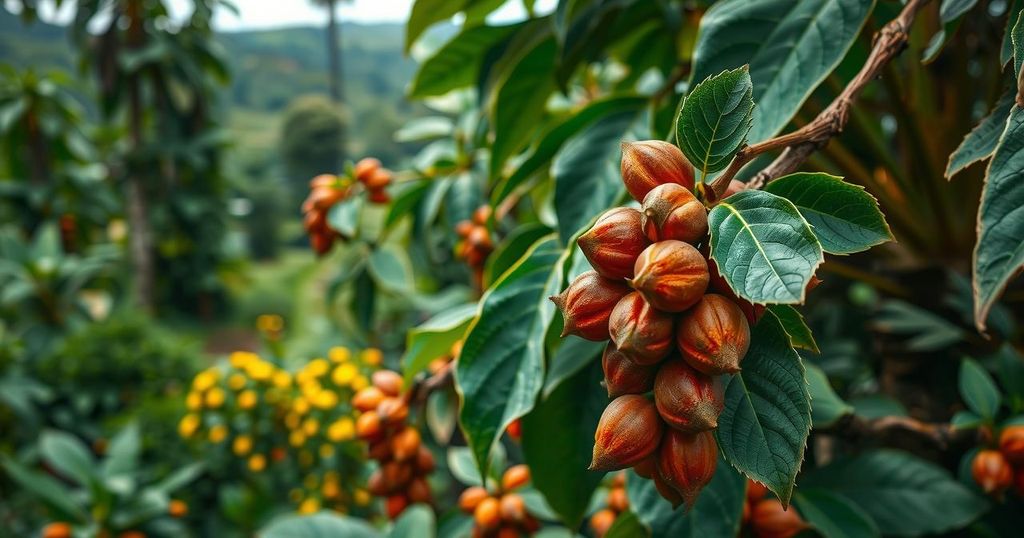A recent study from the University of Göttingen highlights the importance of agroforestry systems in enhancing climate resilience for cocoa farming in West Africa. By analyzing shade tree leaf phenology, researchers identified how certain trees improve cocoa productivity and maintain soil moisture during droughts, offering practical guidelines for sustainable cocoa production.
Cocoa farming in West Africa, which produces 70 percent of the world’s cocoa, faces challenges due to climate change and drought. Recent research conducted by scientists from the University of Göttingen highlights the significance of agroforestry systems that incorporate shade trees. These systems enhance cocoa productivity and resilience through the seasonal changes of leaf cycles, known as leaf phenology. The study emphasizes that selecting appropriate shade trees can significantly impact soil moisture retention and overall cocoa yields.
A comprehensive two-year field study in Ghana focused on the interactions between cocoa plants and various shade tree species. Researchers monitored the effects of leaf cycles on microclimates, soil moisture, and cocoa production during both the wet and dry seasons. Findings revealed that shade trees categorically classified based on their leaf phenological characteristics resulted in different impacts on cocoa farming, with certain trees proving more beneficial in drought conditions than others.
The researchers identified seven functional groups of shade trees based on their phenological patterns, each influencing cocoa yields uniquely. Trees that completely shed their leaves during the dry season were particularly effective in maintaining soil moisture during drought, crucial for sustaining cocoa production. Conversely, deciduous trees with shorter leaf loss periods sparked higher soil water demand, potentially leading to detrimental effects in extended dry seasons. Furthermore, while evergreen trees positively contributed in temperate climates, they increased the risk of fungal infections in wetter regions.
Dr. Munir Hoffmann from Göttingen University remarked on the practicality of these findings. He stated that utilizing functional groupings of shade trees instead of focusing on numerous individual species will aid in selecting trees that bolster climate-resilient cocoa production. Lead author Dr. Issaka Abdulai underlined the importance of leaf phenology in enhancing cocoa resilience amid climate fluctuations. Professor Reimund Rötter emphasized the potential of judicious shade tree selection to sustain cocoa productivity while ensuring environmental stability.
This vital research was supported by funding from the German Research Foundation (DFG), indicating collaborative academic efforts to address climate challenges in cocoa farming.
The role of agroforestry in cocoa farming is critical, particularly in West Africa, which accounts for a significant portion of global cocoa production. Environmental changes caused by climate change, such as increased drought frequency, present major threats to sustaining cocoa yields. Consequently, understanding the impact of shade trees and their leaf cycles becomes essential in developing strategies that enhance the resilience of cocoa farming to climatic disturbances. The concept of leaf phenology offers a valuable framework for selecting appropriate shade trees that can positively influence the microclimate and soil conditions needed for optimal cocoa growth.
In conclusion, the study conducted by the University of Göttingen presents a strategic approach to enhancing climate resilience in cocoa farming through the selection of shade trees based on their leaf phenology. By categorizing shade trees into functional groups, farmers can make informed decisions that not only improve cocoa yields but also promote environmental stability. The findings underscore the need for sustainable agricultural practices to mitigate the impacts of climate change, ensuring the future of cocoa production in West Africa.
Original Source: www.eurasiareview.com






